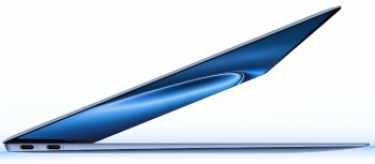The Financial Times reported on Wednesday that the move, by the US Department of Commerce, would halt chip supplies for Huawei's laptops and mobile phones.
The newspaper said the commerce department had confirmed the revoking of certain licences to Huawei without being specific.
A department spokesperson was quoted as saying: “We continuously assess how our controls can best protect our national security and foreign policy interests, taking into consideration a constantly changing threat environment and technological landscape.
|
|
Intel, Qualcomm and Huawei did not respond to requests from the FT for comment, the newspaper noted.
The latest clampdown may have been hastened by a push by Republican Senator Marco Rubio [Florida] and US Representative Elise Stefanik [New York], who wrote to Commerce Secretary Gina Raimondo on 25 April, noting that Huawei had recently announced a computer powered by Intel’s new Core Ultra 9 processor.
"American companies are prohibited from doing business without a licence with Huawei, a company with ties to the Chinese Communist Party and a history of spying on US military installations," the duo noted.
"However, Huawei recently announced a computer powered by Intel’s new Core Ultra 9 processor, suggesting the Biden Administration is allowing Intel and potentially other US companies to trade with Huawei, in effect giving this sanctioned Chinese company a lease on life. The Biden Administration previously granted export licences to Intel and Qualcomm in similar cases."
Exactly how soon this latest measure will take effect is unknown. The US has been dragging its heels on providing funds to communications providers to rip out and replace equipment made by Huawei and ZTE Corporation although the decision to do so was taken years ago.
The chairwoman of the Federal Communications Commission, Jessica Rosenworcel, said in a statement last Thursday that there was a shortfall of more than US$3 billion (A$4.52 billion) in the FCC's "rip and replace" program.
This initiative was meant to "secure America’s communications networks by removing, replacing, and disposing of communications equipment and services produced or provided by Huawei Technologies or ZTE Corporation", the statement said.
Washington has been on Huawei's case since 2012, when a 66-page Congressional report claimed that the company was not doing business the American way.
More recently, the US launched a campaign to prevent Huawei, which produces the cheapest and, some say, the best 5G equipment, from doing business with numerous countries, including Australia.
The American scare campaign was successful to a large extent, with the UK, New Zealand, and many European countries toeing the US line.
Despite all these moves, and also efforts to prevent Huawei from gaining access to the latest semiconductors, the company has progressed to the point where it announced in July last year that it would be making a bid to return to the 5G smartphone business.
A Reuters report at the time cited three third-party technology research companies, who report on China's smartphone sector, as saying Huawei should be in a position to obtain 5G chips in China, using its own advances in semiconductor design tools, helped by Semiconductor Manufacturing International Company, China's largest chip manufacturer, which would make the chips.
Huawei's consumer business brought in US$67 billion (A$101.22 billion) in 2020, before it fell by more than half that amount a year later. It sold off its budget smartphone business Honor to a network of agents and dealers in November 2020.
In October 2022, the US Department of Commerce announced updates to export rules governing semiconductors which were squarely aimed at preventing China from obtaining high-end chips used in military applications.
A year later, there were further measures adopted. The new rules made it much more difficult for American firms Nvidia and Intel to either sell their existing products in China or introduce new products that bypassed the rules.
US semiconductor lobby group, the Semiconductor Industry Association, made its unhappiness with the new rules plain by saying: "Overly broad, unilateral controls risk harming the US semiconductor ecosystem without advancing national security as they encourage overseas customers to look elsewhere.
"Accordingly, we urge the administration to strengthen coordination with allies to ensure a level playing field for all companies.”
Update, 9 May: China's Ministry of Commerce said: "The Chinese side firmly opposes the latest US revocation of licences for export to Huawei, which is a typical 'economic coercion'.
"The US practices not only violate WTO rules, but also seriously damage the interests of US companies. China will take all necessary measures to resolutely safeguard the legitimate rights and interests of Chinese companies."











































